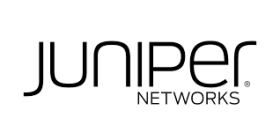Juniper Networks Certified Associate - Junos
JNCIA-Junos
Fortray Global Services LTD
Summary
- Tutor is available to students
Overview
Fortray’s JNCIA (JNCIA-Junos) is the entry-level credential required to continue to the advanced certifications in our Junos certification tracks. Successful candidates demonstrate knowledge of the Juniper Networks Junos OS, networking fundamentals, and basic routing and switching.
Fortray’s juniper JNCIA course will ensure that the learner gains extensive hands-on experience on the Real & Licensed hardware along with an industry-experienced trainer with only one vision in mind.
This course provides knowledge of
- Junos OS Fundamentals
- User Interface Options
- Junos Configuration Basics
- Operational Monitoring and Maintenance
- Routing Fundamentals
- Routing Policy and Firewall Filters
- Class of Service
- Networking Fundamentals
Certification
Juniper Networks Certified Internet Associate – Junos (JNCIA-Junos)
Description
Chapter 1: Course IntroductionChapter 2: Junos Operating System Fundamentals
- The Junos OS
- Traffic Processing
- Platforms Running the Junos OS
Chapter 3: User Interface Options
- User Interface Options
- The Junos CLI: CLI Basics
- The Junos CLI: Operational Mode
- The Junos CLI: Configuration Mode
- Lab 1: The Junos CLI
Chapter 4: Initial Configuration
- Factory-Default Configuration
- Initial Configuration
- Interface Configuration
- Lab 2: Initial System Configuration
Chapter 5: Secondary System Configuration
- User Configuration and Authentication
- System Logging and Tracing
- Network Time Protocol
- Archiving Configurations
- SNMP
- Lab 3: Secondary System Configuration
Chapter 6: Operational Monitoring and Maintenance
- Control Platform and Interface Operation
- Network Utilities
- Maintaining the Junos OS
- Password Recovery
- System Clean-up
- Lab 4: Operational Monitoring and Maintenance
Chapter 7: Interface Configuration Examples
- Review of the Interface Configuration Hierarchy
- Interface Configuration Examples
- Using Configuration Groups
Chapter 8: The J-Web Interface
- The J-Web GUI
- Configuration
- Lab 5: The J-Web Interface
Chapter 9: Routing Fundamentals
- Routing Concepts: Overview of Routing
- Routing Concepts: The Routing Table
- Routing Concepts: Routing Instances
- Static Routing
- Dynamic Routing
- Lab 6: Routing Fundamentals
Chapter 10: Routing Policy
- Routing Policy Overview
- Case Study: Routing Policy
- Lab 7: Routing Policy
Chapter 11: Firewall Filters.
- Firewall Filters Overview
- Case Study: Firewall Filters
- Unicast Reverse-Path-Forwarding Checks
- Lab 8: Firewall Filters
Chapter 12: Class of Service
- CoS Overview
- Traffic Classification
- Traffic Queueing
- Traffic Scheduling
- Case Study: CoS
- Lab 9: Class of Service
Who is this course for?
- System administrators
- Support Analysts
- Network engineers
Requirements
An ideal candidate should have
- Cisco CCNA – 200-125
- Basic networking knowledge and an
- understanding of the Open Systems Interconnection (OSI) reference model and TCP/IP protocol suite.
Questions and answers
Reviews
Currently there are no reviews for this course. Be the first to leave a review.
Legal information
This course is advertised on reed.co.uk by the Course Provider, whose terms and conditions apply. Purchases are made directly from the Course Provider, and as such, content and materials are supplied by the Course Provider directly. Reed is acting as agent and not reseller in relation to this course. Reed's only responsibility is to facilitate your payment for the course. It is your responsibility to review and agree to the Course Provider's terms and conditions and satisfy yourself as to the suitability of the course you intend to purchase. Reed will not have any responsibility for the content of the course and/or associated materials.


